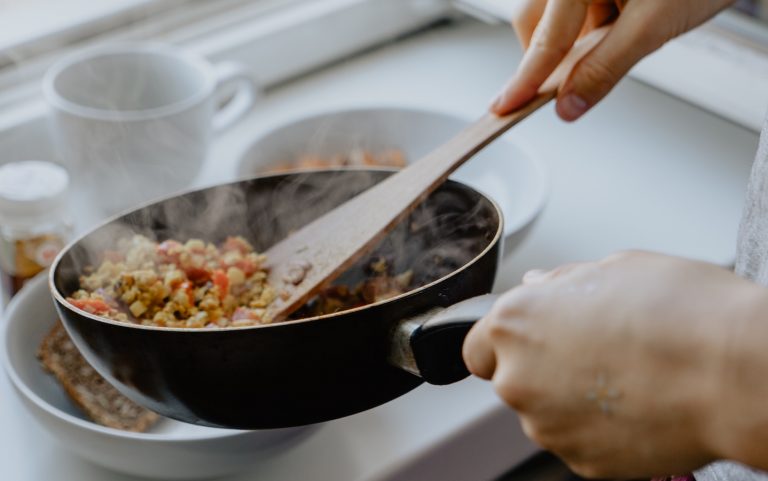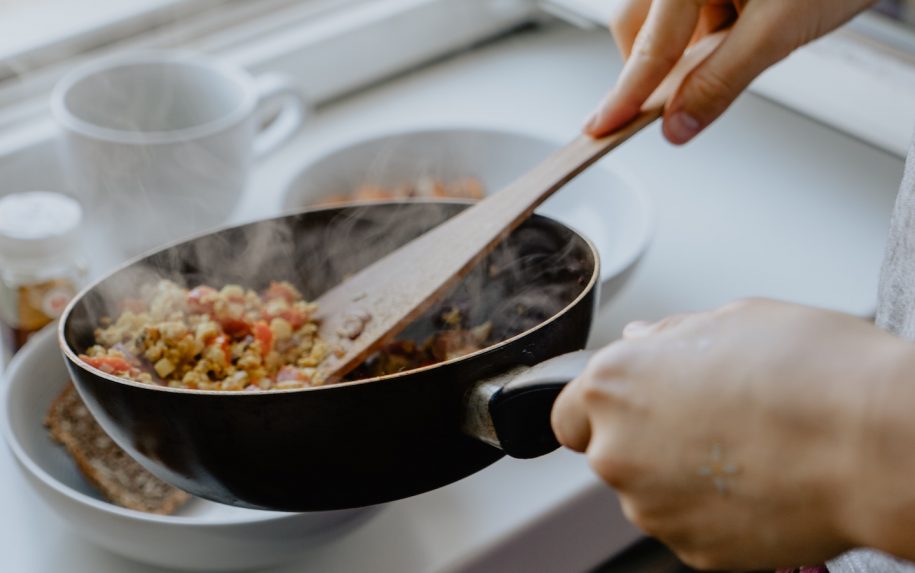Cooking with Fats: What’s Best to Use When

Fats tend to be a big area of confusion: What fats to eat, what fats to cook with, what fat to avoid, and how much to enjoy. Previously, we discussed choosing the best cooking oils for your kitchen: unprocessed, cold-pressed oils from nuts, seeds, and fruits. This month, to help bring more clarity to the issue, we’re going to talk about choosing fats for all your cooking and baking needs.
Saturated Fats Are Best For High-Heat Cooking
Because saturated fats have a stable molecular structure, they are not ruined when heated. When panfrying or sauteing, chose fats such as butter, ghee, animal lard or tallow, coconut oil, and palm oil. Animal fats should ideally be grass-fed, pastured, and organic. Tropical fats should be unrefined and organic. Reusing rendered fat from quality bacon or duck is resourceful and flavorful. My day-to-day stovetop choice is butter for eggs and veggies and duck fat for meats.
Monounsaturated Fats Are Best for Low-Temp Cooking
It is appropriate to use liquid fats with light cooking such as a quick stir fry, saute, or simmer. They can also be added on top of fish or veggies after cooking to add flavor. Olive oil, avocado oil, peanut oil, macadamia oil, and sesame oil are all appropriate. These oils should be produced by cold, expeller-pressed methods. Read the labels…some in this category may be refined or process, so make sure you’re buying quality.
Polyunsaturated Fats Should Never Be Heated
Because of their more delicate molecular structure, oils such as flax, hemp, pine nut, pumpkin seed, sunflower, and grapeseed should never be heated. These oils are best added on top of veggies after cooking or used in salad dressings. Ideally these should be unprocessed and unrefined, purchased in dark glass bottles, and stored in the refrigerator.
What About Baking?
Because baking occurs at higher temps for long periods of time, saturated fats are best. If a recipe calls for solid fat I use butter, coconut, or palm oil. If a recipe calls for liquid oil, I simply melt the butter or coconut oil.
Reminder! Unsafe to Consume!?
Please remember that canola, corn, cottonseed, soybean, “vegetable,” hydrogenated or partially hydrogenated oils are highly processed and require chemical extractions at high temperatures to produce their oils. Nothing about these oils nourish our bodies and, in fact, they can cause a lot of damage.
Source:
Nutritional Therapy Association. “What Is the Healthiest Cooking Oil?: A Comprehensive List of Safe and Unsafe Oils For Cooking.” August 2019.
Courtney Hasseman is a Certified Nurse-Midwife and Nurse Practitioner who provides integrative gynecologic care for women. Additionally, she is certified in nutritional therapy and offers functional nutrition programs specializing in hormonal and menstrual health. Courtney is an educator at heart and is passionate about providing unhurried, highly personalized, comprehensive care for women. She provides both in-person and online consultations based from her Northern Virginia clinic.
